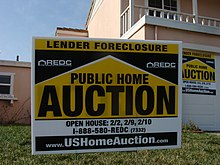
"You can always get someone up on charges if you work hard enough given all the regulations we have," says Ed Novak, an attorney at Polsinelli Shughart. "I don't buy that the financial industry has so weakened the statutory framework of this country that we can't pursue something."
The details of the allegation may be special to Deutsche Bank, but the story has the same general characteristics of so many schemes unearthed in the aftermath of the financial meltdown. A bank takes weak mortgages and finds a way to sell them for more money to unsuspecting investors, passing the risk onto others while making a profit.
It is easy to forget that the system moves more slowly that we'd like. Even in the case of Enron, it took years for justice to be served. The indictments moved at a quick pace due to the company's high profile collapse (and having a whistleblower didn't hurt), but the process still took years.
Cracks were visible at Enron in 2001, the year it filed for bankruptcy. Congress held an inquiry in 2002, and smaller players were indicted. But it not until 2004 were former CEO Jeff Skilling and ex-chairman and CEO Ken Lay indicted. The trials dragged on through the spring of 2006.





 Over the last year, US corporate leaders have often explained layoffs by saying the positions were...
Over the last year, US corporate leaders have often explained layoffs by saying the positions were... United Parcel Service on Tuesday said it would cut up to 30,000 operational roles in 2026,...
United Parcel Service on Tuesday said it would cut up to 30,000 operational roles in 2026,...






























